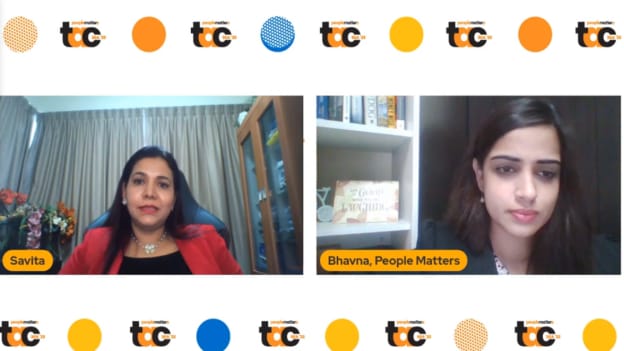Tech and the candidate experience

The last two years of digital acceleration have caused many organisations to innovate a huge suite of tools to improve their workflow and processes. Recruitment functions, too, have seen a vast shift in terms of digitisation. From automating manual processes and scaling outreach, to improving candidate experience, technology will continue to play a major role in advancing the recruitment space, says Savita Mittra, Area Talent Acquisition Director APAC at healthcare multinational Abbott.
Speaking at People Matters Talent Acquisition Conference 2022, Savita described the three dimensions of technological impact:
Improved efficiency
Automation and data analytics save time and allow recruiters to make more valuable contributions.
Increased access to less obvious talent pools across more varied demographics
“If you hire for roles that you've never hired for, or you're looking at future skills which are not yet benchmarked, you have to look at unconventional tools,” Savita explained.
Enhanced candidate experience
“You want to have high touch and close communication in the candidate interview process,” Savita said. “At a time when the pandemic continues to make the environment uncertain, and candidates may be reluctant to commit to the decision of joining a new team, it is important to have the kind of technical leverage that can help people make better choices,” she pointed out.
“Technology really can shape the whole strategic intent of your hiring and the approach to how you engage people throughout the process.”
Getting the competitive advantage from technology
Digital tools have proliferated and organisations today have a plethora of platforms providing high-quality candidate experiences to choose from. At such a time, a company’s key differentiator lies in its ability to connect with candidates in a way that empowers them to make an informed decision and accept the right offer.
It's about the value proposition, Savita said.
“You want to bring that authentic information out to them in such a way that they can digest it,” she explained. In her view, companies must leverage technology to enhance the candidate experience, and harness the power of data and outreach in providing candidates with the relevant information.
For this, it is crucial to identify the appropriate technology— the fit must be right in terms of cost, quality, speed, and the desired candidate experience. The technology should be such that it can:
a) be integrated into the organisation's existing processes seamlessly
b) have the flexibility to adapt or enhance its functionalities as per the demands of the changing environment
Similarly, the organisation’s readiness and capability to use technology, too, plays a vital role in determining how successfully the technology will evoke the desired value proposition. Leaders/decision makers must consider whether the company’s existing processes and manpower are in a position to support the use of technology. Employees’ skills and inclination are both important for an organisation to successfully implement a digital transformation.
Things to bear in mind during implementation
“The tech itself may get in the way of experience if it's not well managed,” Savita warned. “If, for example, there are multiple technologies and you don't have an overarching platform to integrate them.”
Her advice for choosing tech is to ensure that:
1) There is a right level of adoption, even before looking at impact
2) The organisation's readiness and needs have been adequately assessed
3) The tech is simplified enough for the end user
“Most times when I look at technology, I look at first the utilisation KPI, and then the impact KPI,” said Savita.
And of course, managers and leaders must understand the technology's purpose and be comfortable to use it. This involves awareness and, if necessary, upskilling.
“Hiring managers need to understand what the technology is going to create and how it is going to benefit them,” Savita noted. “We can't assume that they would automatically have that understanding. So one thing we need to work on is sharing and helping hiring managers understand the benefit, and then giving them enough support and aid to be able to adopt the technology.”
















